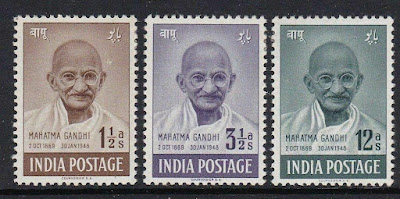Mohandas Karamchand Gandhi, popularly known as Mahatma Gandhi, was a prominent leader in the Indian independence movement against British colonial rule. He was born on 02 October 1869, in Porbandar, Gujarat, India. Gandhi became a key figure in the fight for India's independence through his philosophy of nonviolent resistance, which he called "Satyagraha."
Key points about Mahatma Gandhi:
Early Life: Gandhi studied law in London and later worked as a lawyer in South Africa, where he first began his activism in civil rights.
Satyagraha: Gandhi's philosophy of Satyagraha, or nonviolent resistance, became a guiding principle in the Indian independence movement. He led campaigns of nonviolent civil disobedience against various British laws and policies.
Salt March: One of the most famous episodes in Gandhi's life was the Salt March (Dandi March) in 1930, a 240-mile march to the Arabian Sea to protest the British salt monopoly. This campaign drew international attention to the Indian independence movement.
Indian National Congress: Gandhi was associated with the Indian National Congress and played a crucial role in shaping the party's policies and strategies.
Role in Independence: Through a series of nonviolent protests, strikes, and campaigns, Gandhi contributed significantly to India gaining independence from British rule in 1947.
Partition of India: Gandhi was deeply troubled by the communal tensions between Hindus and Muslims during the process of India's independence, which eventually led to the partition of India and the creation of Pakistan.
Assassination: Tragically, Mahatma Gandhi was assassinated on 30 January 1948, by Nathuram Godse, a Hindu nationalist, in New Delhi. His death was a profound loss for the nation and the world.
Legacy: Mahatma Gandhi is remembered not only for his role in India's independence but also for his teachings on nonviolence, truth, and human dignity. He is a symbol of peace and a source of inspiration for movements advocating civil rights and social justice worldwide.
Gandhi's life and teachings continue to be studied, celebrated, and remembered globally, and he is often referred to as the "Father of the Nation" in India.

No comments:
Post a Comment